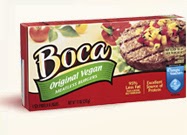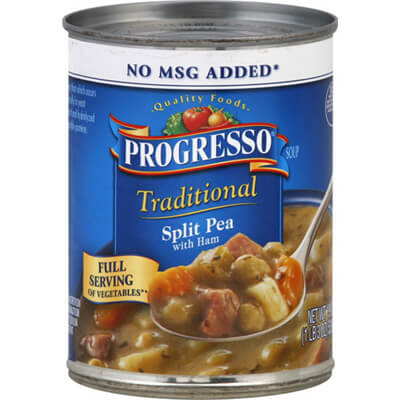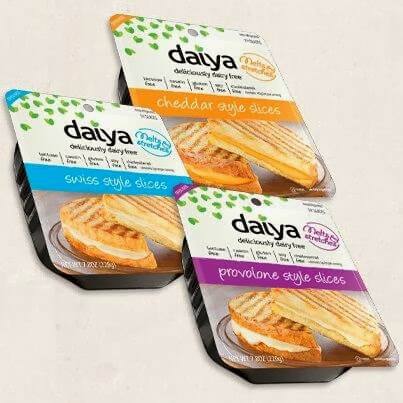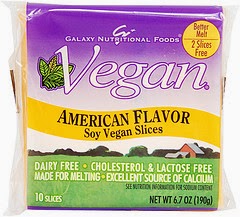It’s been quite awhile since my first post on why I’m no longer a vegan. The last one was mainly about how cholesterol has been demonized by the mainstream medical community, when really, high levels are an indicator of a much larger dietary issue. Sugar is one of the main culprits. The Journal of American Medical Association published a study that showed excess sugar consumption tripled the risk for heart disease. For more info you can read about it here.
There are several reasons why I’m no longer vegan, but the processed “health” food trap was one issue I had with the diet. It’s not impossible to eat a whole foods, vegan diet, but so many don’t.
“I would never eat Oreos or drink diet Coke!” you may be saying.
Ingredients: WATER, SOY PROTEIN CONCENTRATE, WHEAT GLUTEN, CONTAINS LESS THAN 2% OF METHYLCELLULOSE, SALT, CARAMEL COLOR, DRIED ONIONS, YEAST EXTRACT, SESAME OIL, HYDROLYZED WHEAT PROTEIN, NATURAL AND ARTIFICIAL FLAVOR (NON-MEAT), DISODIUM GUANYLATE, DISODIUM INOSINATE.
Methylcellulose is also worth mentioning. It doesn’t seem to be harmful at all, besides it being a chemically engineered substance. It is however marketed as a bulk forming laxative, which seems a little gross to me to include it in a delicious veggie burger.
Natural Oil Blend
I’m not going to throw paint on your fur coat, but I am against the senseless and massive destruction of the earth God entrusted to us. There is, however, ethically sourced palm oil comprising 10% of the market
Cheese is such a staple in our modern diet; mac ‘n cheese, pizza, grilled cheese. We’ve become so accustomed to it that’s it’s hard to give up and easy to grab a cheese substitute.
MSG
• A significant return of symptoms (total symptom score, p<0.02);
• A worsening of fibromyalgia severity as determined by the FIQR (p<0.03);
• Decreased quality of life in regards to IBS symptoms (IBS QOL, p<0.05);”
The effects of excitotoxins like aspartame and MSG are cumulative and disease symptoms can show even 15 years after consumption has stopped.





I think it is great listing hexane, gluten, MSG, and all the potential problems with so called “healthy” foods. However, if you don’t go on to mention the problems with the average diet, it looks like you simply have an agenda. Who needs more agenda.
Of course, it’s true. Many people today know about the anti-biotics, hormones, puss, fertilizers, and pesticides, found in ordinary dairy products, for which there are now plenty of alternatives in organics. And people are also intelligent enough to realize that butter isn’t God given. It is the breast milk of animals, intended for their young, coopted by humans and put through a process. A process that humans had to learn, by trial and error, over time. I haven’t yet read the recipe nor process written in the bible. Nor do I believe Moses had it on his tablets. Also most people understand that if you mean meat was given by God, you likewise mean dog meat, cat meat, gerbil meat, ape meat, elephant meat, rat meat, snake meat, you know, what you said. Meat. I don’t think God was specific about this.
The factory farming process of producing meat, and dairy, the horrible, often painful treatment of God’s creatures, was also not God given. These processes are also human created.
Vegetable oil put into a spread doesn’t make it bad. It is the contaminants put in the process that makes the product bad. Once all oils, and now mostly good olive oil, were produced via a hand/physical press. Now, as I’m sure you know, the process is more complicated. If it isn’t as healthy as it used to be, it isn’t because vegetable oil has now become bad. Or that the oil from the vegetable is any worse than the vegetable, or dairy, for that matter. All, I presume, are equally given by your God.
People have been using vegetable oils for thousands of years. Olive oil has been a staple of Middle Eastern and Mediterranean cultures for thousands of years.
Companies have no problem using Hexane and other horrible substances because they care for nothing but profit. So what you consider “natural” or God given sounds to me like a child who says a pig is called a pig because it plays in dirt.
Also, that chemically expelled oil from vegetable matter is different from physically “expelling,” or squeezing oil, should be obvious to you. These are two different processes. One uses hexane, for removal of the fat from the vegetable matter, the other uses a physical press. It could be a stone, wood, or metal press. Again, this is a very ancient process, as old as, perhaps even older than, animal derived “butter.” And vegetable oils were probably more available to the ordinary masses.. Vegetables were also more available to the ordinary masses than meat up until about 60 years ago in the western hemisphere.
I found as much fact as fiction here, and often the two are confused.
The focus of this particular article was why certain vegan healthy foods are really just processed junk in disguise. There are other articles about the problem with the average diet I’ve written, this was just not one for the sake of brevity.
Factory farming IS awful and harmful for animals and the environment, and I don’t advocate for it whatsoever. Even many organic farms have been exposed as using factory farming methods with puss filled milk, brands like Horizon organics, so they’re just as bad. I buy mine from a local amish family that milks the cow by hand. This cow is able to feed her young without issue and roam in a large pasture of grass. Milk was made for cows, but humans aren’t the only species that drink another animals milk.
And God actually was quite specific about meat in the Torah, calling certain kinds like pork unclean and not to be eaten. I’m not a Jew though so I no longer follow the law to the letter, because I believe the law was fulfilled in the person of Jesus Christ, God’s son.
About the oils. Certain oils like olive and coconut can be expressed through a press with mere pressure and have been for centuries. Other oils, like canola (which comes from the gmo created plant), and soy are modern inventions because they cannot be extracted without extreme pressure and chemicals. They also have a different nutritional profile with a high omega-6 content that causes inflammation and damage in the body.
Earth Balance does not source their palm oil from areas of the world that are detrimental to the environment, just FYI
That’s good to know Laura! We stopped using it because there wasn’t really any nutrition in it, and I didn’t like the high amount of Omega-6 oils. It took some getting used to, but we put coconut oil on just about everything now 🙂
I am always puzzled at claims that GMO wheat (like the ones you make above) has mass invaded our food supply and that we’re all eating it, because every time I double check the facts and evidence, I confirm that GMO wheat is not available commercially as it has not been approved and distributed.
Could you please provide evidence to support your claim that GMO wheat is 1)even available commercially and 2)widespread pervading into our food supply?
I share your concerns about GMO, Monsanto, and pesticides (etc). I choose not to include them in my diet. That’s why I avoid or exercise much caution with corn, soy, cottonseed, beets products (also if I were to buy papaya) — known GMO crops.
I don’t have any gluten or wheat intolerance or allergy or sensitivity and I don’t have digestive issues of any kind.
I enjoy wheat most in my high quality Italian grown, organic pasta made of 100% durum semolina. Otherwise, I eat a range of whole grains/pseudo grains in my diet, such as quinoa, oats, and amaranth. But I also buy other foods that contain wheat, like a cracked wheat sourdough bread on occasion, generally from good companies/brands I trust.
I use mostly EVOO or avocado oil, but occasionally have used a pat of Earth Balance’s spread (Olive Oil version, and previously their short lived avocado based one) — which is how I came across your site.
Hi Sarah, thanks so much for your comment! This is an older post that is really in need of updating. You’re absolutely right that wheat is NOT gmo. However it IS highly hybridized so it contains more gluten than the so called ancient grains. The other big concern I have with wheat is that some is sprayed with round up right before harvest to help the grains dry, and the fields are also sprayed after harvest to make room for the next crops. According to certain agriculture resources only about 1/3 of wheat is sprayed with glyphosate before harvest. I haven’t seen clear, unbiased statistics on how much wheat is or isn’t sprayed, however I live next to wheat fields and they’re all sprayed with glyphosate before harvest and afterward.
Organic wheat can unfortunately become contaminated because there is so much pesticide use in our country and I still have digestive issues even with organic wheat I ground myself. However, Italy doesn’t use glyphosate so the organic pasta from there wouldn’t have the glyphosate issue. Personally I feel better eating lower carb and fewer grains, but everyone is different. It sounds like you’re choosing the healthiest grain options!
I’ve updated the post and took the GMO wheat part out 🙂 I’ll still need to go through and update the rest in the future though!